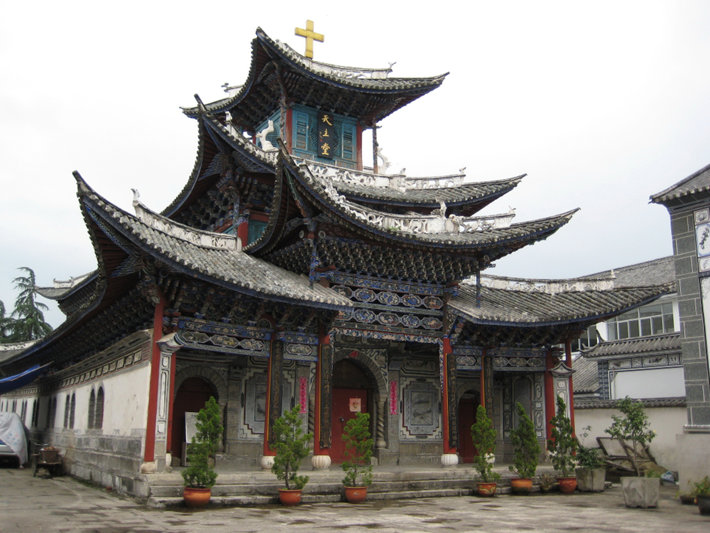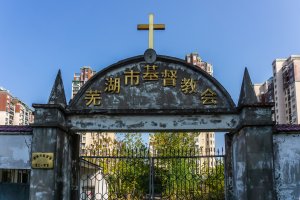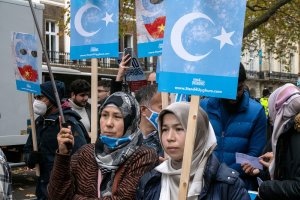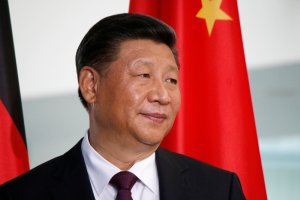The Vatican has come under criticism from human rights advocates for renewing a secret and contested accord with China regarding the appointment of Roman Catholic bishops in that country. It is the second time since implementation in 2018 that the provisional accord has been extended for two years.

On October 22, 2022, the Vatican announced it extended its Provisional Agreement regarding the appointment of Bishops with China to continue “a respectful and constructive dialogue … with a view to fostering the mission of the Catholic Church and the good of the Chinese people.”
“After appropriate consultation and assessment, the Holy See and the People’s Republic of China have agreed to extend for another two years the Provisional Agreement,” the Vatican said in its official press release.
“The Vatican Party is committed to continuing a respectful and constructive dialogue with the Chinese Party for a productive implementation of the Accord and further development of bilateral relations, with a view to fostering the mission of the Catholic Church and the good of the Chinese people.”
The agreement was originally signed in 2018 in “a bid to ease a longstanding divide across mainland China between an underground flock loyal to the pope and a state-backed official church,” according to a July 2022 Reuters article with an exclusive interview with Pope Francis about the Vatican’s agreement with Beijing.
Although the agreement gives Francis the final say in the appointment of Catholic bishops in China, critics have described it as too accommodating to Communist authorities, who have a long history of persecuting Catholics and other religious minorities.
The 2018 provisional agreement was an attempt to close the schism in China’s Catholic population, previously estimated to be around 12 million.
China severed ties with the Holy See in 1951. When the initial accord was signed in 2018, The New York Times reported “For decades, many Chinese Catholics have risked arrest and persecution by worshiping in underground churches led by bishops appointed secretly by popes. China’s Communist government has erected a parallel structure: a state-approved, state-controlled Catholic church. For years, dating back three papacies, the Vatican has sought to unify the two communities.”
The Communist Party is officially atheist and exercises strict control over all religious institutions, including the vetting of sermons.
In the Reuters interview, the pope defended the Vatican’s cooperation with Beijing as an act of patient diplomacy. “Diplomacy is like that,” Francis said. “When you face a blocked situation, you have to find the possible way, not the ideal way, out of it.
“Diplomacy is the art of the possible and of doing things to make the possible become a reality.” Francis agreed that his appointment of bishops in China since 2018 “is going slowly, but they are being appointed.”
Only six new bishops have been appointed since that accord, which opponents say is not producing the desired effects. The pope called the process “the Chinese way because the Chinese have that sense of time that nobody can rush them.”
The renewal of the Accord has met with concern from human rights organizations, including the United States Commission on International Religious Freedom (USCIRF).
“I certainly understand as a Catholic that the Vatican is playing the long game here and not thinking about the immediate circumstances,” said USIRF Commissioner Stephen Schneck in an article in Crux, an independent news site that reports on the Vatican and the Catholic Church.
“I’m very concerned. It’s just really hard to imagine … whatever they might be hoping for in the long game; the immediate situation on the ground in China for Catholics is something that I think the Holy See should be concerned about.”
After the 2018 deal was signed, state officials in different regions of China removed crosses and demolished Church buildings. Underground Catholics and clergy reported harassment and detention.
The Chinese Communist Party insists it protects freedom of religion—but it keeps a tight grip on religious activities, partly by permitting only religious organizations approved by the state. In 2017, the government introduced new rules to regulate religion, updating policies dating back to 2005. Beijing claims the restrictions were necessary to “fight extremism.”
Another opponent of the Vatican’s China deal is Cardinal Joseph Zen, retired bishop of Hong Kong. Zen, 90, was arrested in May along with several other activists under Hong Kong’s strict national security law for helping to raise money for pro-democracy activists.
Zen accused the Vatican of “turning a blind eye to human rights violations in China.”
A proponent of religious freedom in China and a vigorous critic of the Vatican’s deal with Beijing, Zen and five other people were accused of sedition under a draconian national security law imposed by Beijing in 2020, largely to limit people’s right to peaceful assembly.
Zen has denied the charges against him, and his trial, which resumed October 27, five days after the Vatican announced it renewed its deal with Beijing, found him and his co-defendants guilty and fined them for failing to properly register the 612 Humanitarian Relief Fund, which helped pay medical and legal fees for arrested protesters beginning in 2019.
In an interview with Vatican News on October 22, 2022, Cardinal Pietro Parolin said the Vatican-China deal is “still in the experimentation phase.”
“As is always the case, such difficult and delicate situations require adequate time for implementation in order to then be able to verify the effectiveness of the result and identify possible improvements,” he said. “Pope Francis—with determination and patient foresight—has decided to continue along this path not under the illusion of finding perfection in human rules, but in the concrete hope of being able to assure Chinese Catholic communities, even in such a complex context, of the guidance of pastors who are worthy and suitable for the task entrusted to them.”
_______________
From its beginnings, the Church of Scientology has recognized that freedom of religion is a fundamental human right. In a world where conflicts are often traceable to intolerance of others’ religious beliefs and practices, the Church has, for more than 50 years, made the preservation of religious liberty an overriding concern.
The Church publishes this blog to help create a better understanding of the freedom of religion and belief and provide news on religious freedom and issues affecting this freedom around the world.
The Founder of the Scientology religion is L. Ron Hubbard and Mr. David Miscavige is the religion’s ecclesiastical leader.
For more information visit the Scientology website or Scientology Network.


